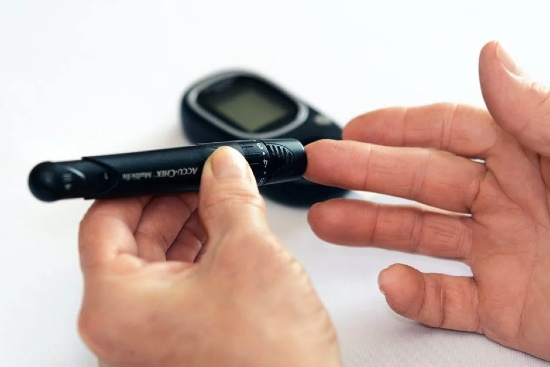Is Combining Alcohol and Diabetes a Bad Idea?
If you’re an adult, it’s likely that you’ve tried a drink or two, and for some of us, it’s part of our daily lives – a small drink to celebrate the end of a week, or chugging it down during a friend’s birthday party. However, if you have diabetes, would it be okay for you to take a drink every now and then, or even at all?
If you have been keeping yourself up with your blood sugar levels, and have been keeping it under control, it is probably harmless to take a drink every once in a while, but do seek your doctor’s advice on this. However, drinking when you are diabetic comes with its own risks which you need to look out for if you want to have a sip of the golden fluids. Even if you aren’t diabetic, heavy drinkers are more likely to develop diabetes. If you or a loved one have an alcohol problem, you should get guidance when dealing with substance abuse.
Risks With Drinking
One of the greatest concerns of drinking with diabetes is the risk of having low blood sugar or hypoglycemia. This happens because your liver, which is the main regulator of your blood sugar levels, is also responsible for the detoxification of alcohol. The liver helps to break down alcohol into less harmful substances for your body in order for its excretion out. However, some of the products of these processes could inhibit or obstruct your liver from making sugars and thus, prevent the release of sugars for your body cells, causing low blood sugar. If hypoglycemia is not immediately treated, it could be life-threatening by leading to coma and seizures.
People who are diabetic are at high risk of hypoglycemia because when they drink, they are most probably already on insulin or medications to lower their blood sugar even more. This is made worse when a person continues to drink even more, which makes your liver work even harder to process the alcohol and hence increasing the risk of decreased blood sugar.
Another implicated risk is the association of alcohol intoxication with hypoglycemia, as they share similar symptoms such as dizziness, nausea, drowsiness, hunger, increased heart rate, etc. When drinking, one can often make the assumption that these signs are due to the alcohol intake, but in fact, are signs of low blood sugar. Hence it is important to highlight these concerns to your drinking buddies so that they can help to keep a lookout.
Other Health Risks of Drinking
Other risks include weight gain or increased blood pressure caused by prolonged or chronic drinking, which can worsen the conditions of diabetes. High-fat levels can also cause pancreatitis (inflammation of the pancreas) and disturb insulin production, affecting the regulation of blood sugar in your body. It also causes the development of peripheral neuropathy, whereby it causes the neurons to become damaged, often experienced at the extremities such as feet and legs, causing sensations such as numbness or burning. It can also affect vision and develop retinopathy, where it is caused by the high blood sugar levels, damaging the retina and affecting vision. In general, diabetes can damage blood vessels all around the body.
Lastly, drinking can impair your judgment and cause complications and confusion over how to keep the condition under control, such as forgetting to check your blood sugar levels or eating medications due to intoxication.
Drinking When on Medications
You should consult your doctor before making these choices as they would be in a better position to seek advice from. The combination of drinks and medication can lead to unwanted side effects, which worsens if the person has alcoholism. For example, the consumption of insulin with drinking can increase the risk of low blood sugar, while taking metformin can increase the risk of low blood sugar and lactic acidosis, where there is an accumulation of lactic acid in the body, causing diarrhea, cramps, and fatigue.
What are the Limits of Drinking?
Once the doctor has given his permission for the drinking, and you are aware of the risks to take note of, you now need to know what your limits are to drinking to prevent any serious complications. Here are some pointers to take note of so you do not go over your limits:
- Take light beers and dryer wines which are lesser in alcohol content and calories
- Do not take sweeter alcohols or drinks which are high in sugar
- If you order a mixed drink, mix with water or diet soda for sweet drinks
- Look up the American Diabetes Association (ADA) who gives guidelines for drinking, where it is defined as one drink or less for women, or two drinks or less for men.
Things To Take Note Of
When drinking, it is important that you do not go overboard and become drunk which can potentially be very dangerous. Instead, have some light drinks but stay aware of your body and the signals they give you about your condition. Follow these tips in order to keep yourself in order:
- Always drink water to keep yourself hydrated. Alcohol can dehydrate you which will upset your body.
- Always eat before drinking. This reduces the risk of low blood sugar as there would be sugar from the food running in your blood.
- Do not take sugary drinks. They can cause your blood sugar levels to go overboard and make it hard for your liver to cope.
- Always check your blood sugar levels regularly. You should check them before and after drinking to see if it is low. If your blood sugar levels are low, top it up by eating a small snack like an apple or yogurt to make sure that your blood sugar levels are kept healthy.
- Ensure that you always bring your diabetic ID with you when you drink. This will help any medical professional in their diagnosis and treatment during an emergency should one occur.
- Book a driver to send you home after drinking in case you have a case of low blood sugar levels.
Bottom Line
Alcohol can increase your risk of developing diabetes if you are not careful with how much and how often you drink. If you are a heavy drinker who drinks often, you are more likely to develop diabetes than those who do not. So stay healthy, and stay conscious of your health and well being.










